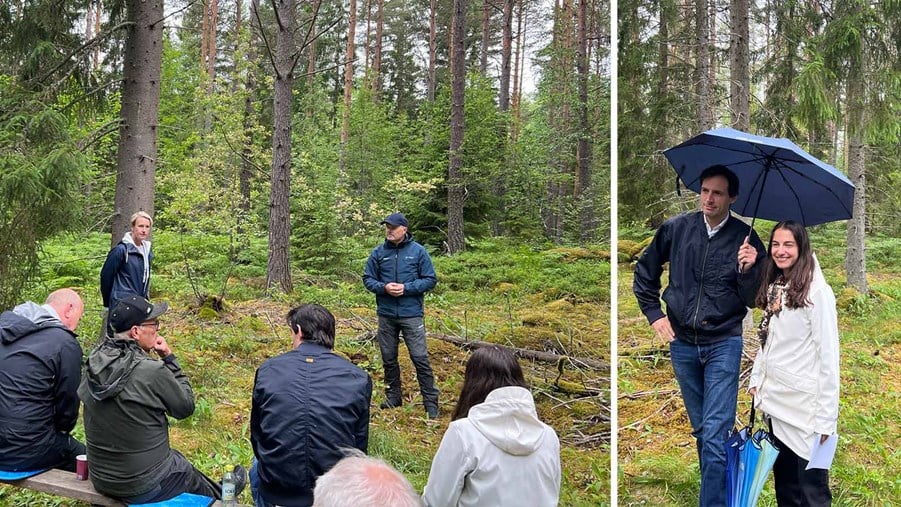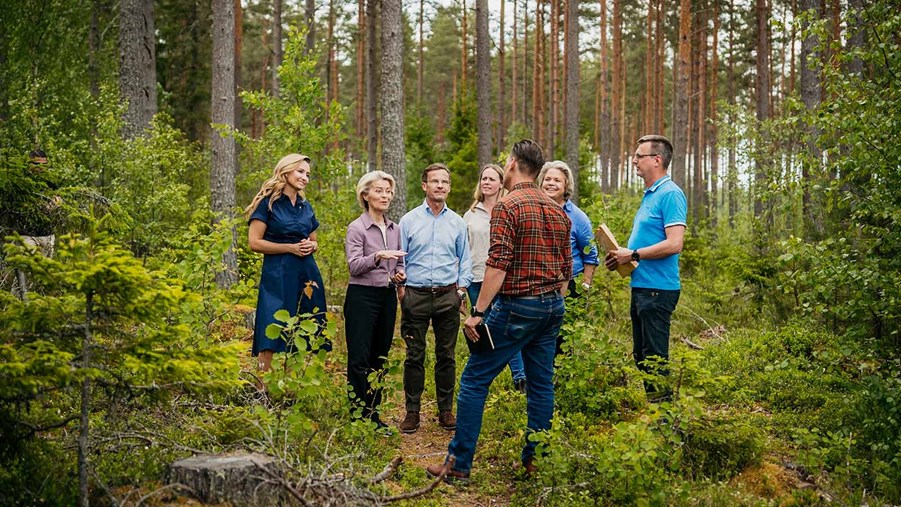
The role of forests in the green transition topped the agenda when the EU Commission's Climate Commissioner Wopke Hoekstra visited Sweden recently. Along with Climate and Environment Minister Romina Pourmokhtari (Liberal Party), Director General of the Swedish Forest Industries Federation Viveka Beckeman, and representatives from environmental and forest owner organizations, Hoekstra made a field visit to a forestry site and discussed a range of issues, including how the Swedish forest industry can contribute to the achievement of the EU's climate goals.
"It is gratifying that the EU Commission is clearly showing an interest in the various climate benefits that forests and their products offer the ongoing green transition. The Swedish forest industry wants and can help create a climate-neutral Europe by delivering sustainable, renewable products and replacing fossil ones. Constructive discussions about the full climate benefits of forests are an important step forward in this regard," says Beckeman.
During the visit to Holmen, one of Sweden’s largest forest owners, Hoekstra toured a “Knowledge Forest”. Holmen’s Knowledge Forests are specially selected locations to gather and share knowledge about forests. In addition to the Swedish Climate Minister, Ivar Vatne, CEO of Billerud, representatives from LRF Forest Owners, the Swedish Forest Industries Federation, and WWF also participated in the visit. Discussions focused on the climate benefits of sustainable forestry and the existing and future climate benefits of the forest industry's production of wood-based products and materials.
"It is of the utmost importance for the EU to enable active forest management. Seeing forests purely as carbon sinks is counterproductive. Forests have so much more to offer, and it is through active management and the use of renewable forest raw materials that we fully utilize their climate potential," says Beckeman.
In recent years, Swedish forests and the forestry sector have increasingly been subject to various EU regulations. Some of these are within the framework of the EU's Green Deal, a comprehensive environmental and climate policy package. Currently, work is also underway to set the bloc’s climate targets for 2040.
"It is extremely important that the EU sticks to the Green Deal's direction to achieve climate neutrality. Ambitious goals must be combined with a comprehensive focus on actions that have impact. This is about reducing fossil emissions, promoting a European bioeconomy, and utilizing the full potential of forests as major sources of climate benefits," says Beckeman.
Following European Parliament elections, EU cooperation is in a formative phase where guidelines and priorities will be set for the coming years. This includes the selection of a new Commission and the development of the political direction for the next mandate period (2024-2029). The Swedish Forest Industries Federation has highlighted climate, circularity, sustainably managed forests, and a resilient and competitive EU as particularly important areas in its input for this.


